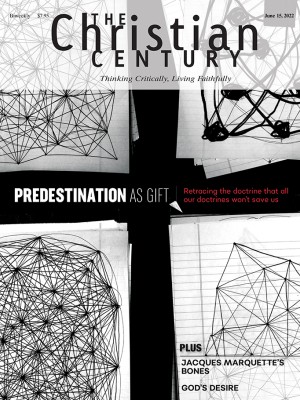
Seven-year-old Amos loves his public school teacher. His mother told me recently that when he was practicing writing skills at home one night, he kept saying “finger space” every time he needed to use his index finger to measure distance between the words “I love you, Ms. Ross.” For her birthday, he bought her assorted school supplies. Walking to school one day he picked dandelions to present her with a bouquet.
Amos’s emotional bond with Ms. Ross brings to mind my own favorite elementary school teacher. Mrs. Rainier was outstanding. I still can’t determine if she was a cut above every other teacher I had through my years or if my crush on her distorted all objectivity. But I loved her, and I learned so much during that third-grade year. When my parents invited our teachers to our home for dinner every spring, we kids would hide out on the second-floor landing and poke our heads through the stair rail balusters, hoping to hear whatever we could of the adult conversation below. I think I wanted to know if Mrs. Rainier loved me as much as I loved her.
Read our latest issue or browse back issues.
Most of our understanding of knowledge involves the intellect. Early in my ministry, when I thought teaching was primarily about delivering information and transmitting wisdom, I must’ve resembled many other new clergy. Developing an emotional bond with others in a classroom or sanctuary didn’t carry for me the importance or significance of downloading information from my head and exporting it to others. I assigned little emotional value to the art of teaching or the science of learning.
With time, I’ve come to realize that we learn the most in life from teachers we love. Neuroscientists who study brain-to-brain synchrony, like Suzanne Dikker of New York University, have found that the brain waves of teachers and students increasingly synchronize the more they like each other. Learning expands when a strong relational bond exists.
In the realm of faith, we know much more than our mind or intellect can tell us. We know that neither death, nor life, nor angels, nor principalities are able to separate us from the love of God in Christ Jesus. It’s not deductive reasoning that gives us this knowledge; it’s faith tied to love. When I sing, “I know that my Redeemer lives,” I’m not sharing intellectual certainty. I’m expressing my loving confidence in who God is to me. When Paul writes of wanting “to know Christ and the power of his resurrection,” he’s not talking about mental activity. He has personal knowledge in mind, knowledge that comes only through intimate experience. Ginosko is the Greek word he employs for this emotional way of relating and knowing, not oida, the other New Testament word for more factual or observation-based knowledge.
The memory of my affection for Mrs. Rainier—and yes, I think she liked me too—keeps reminding me never to ignore the loving bond that deserves to exist between me and the people I live and work with. I’m not talking about adoration, which ego-seeking pastors can never have enough of. Just a capacity to delight in strong emotional bonds. If I can generously love others and they, in turn, can find a way to love the gist of who I am, there’s no telling how much we’ll learn from each other—and how much our love for God will also expand.







